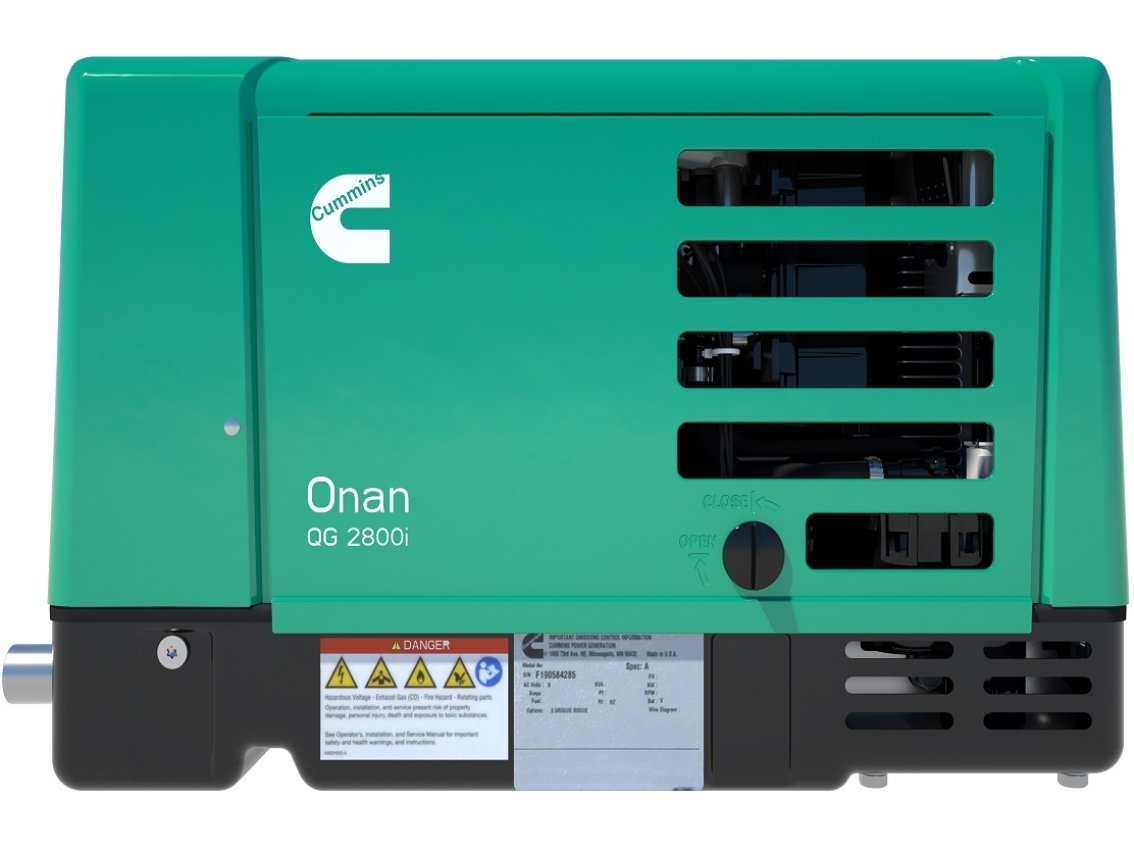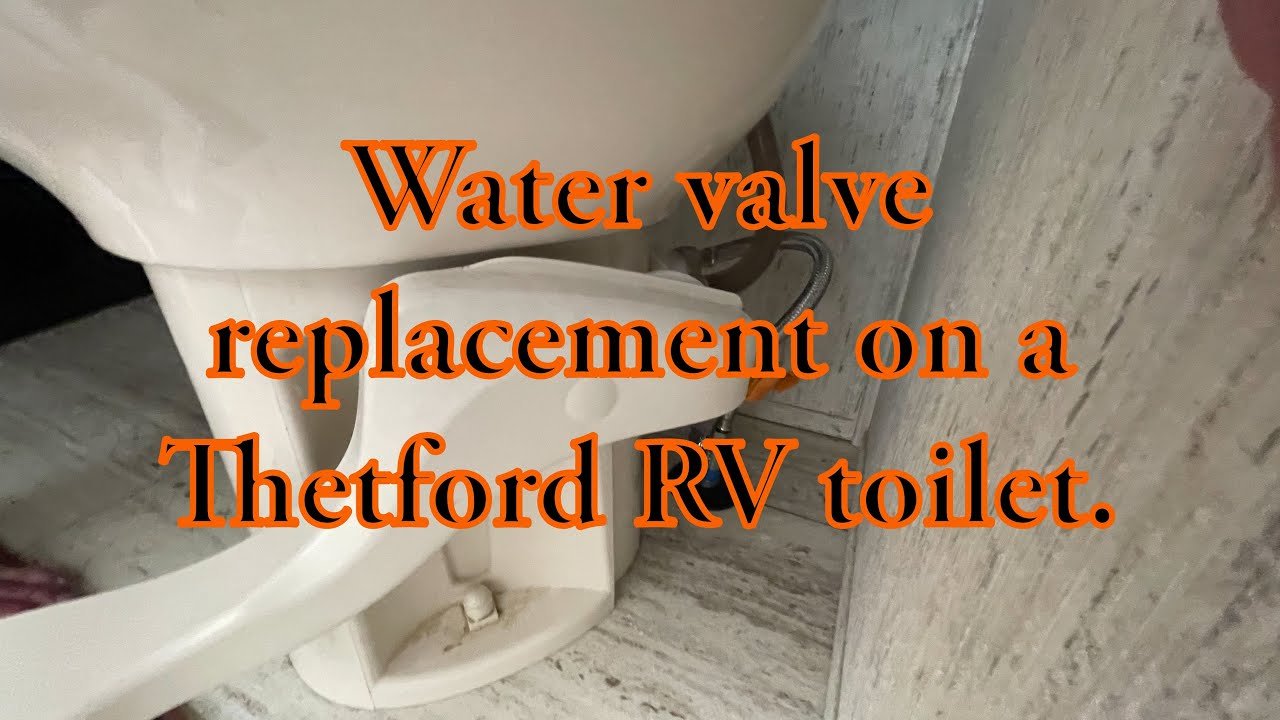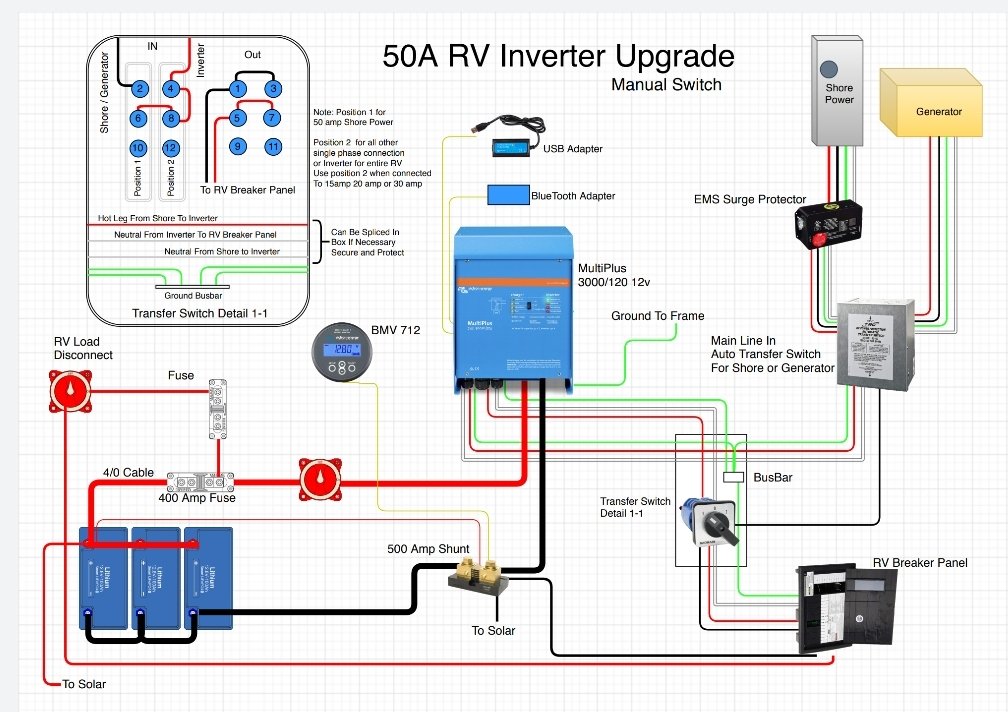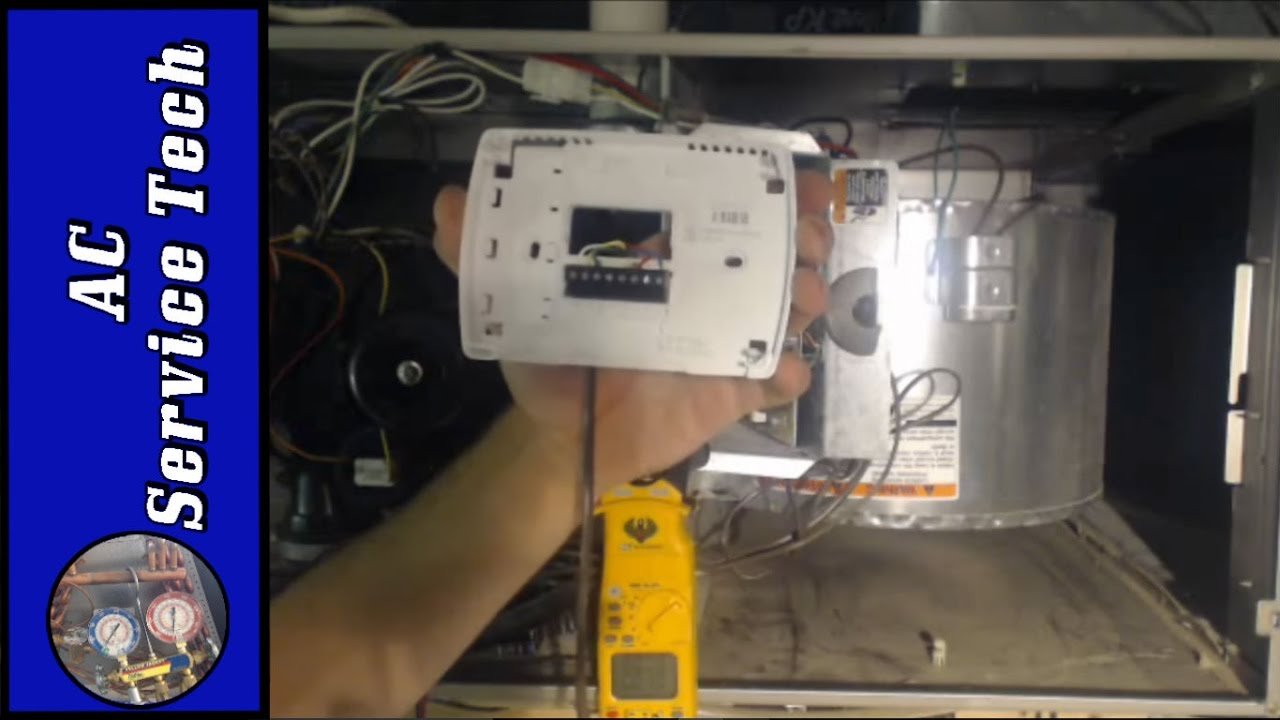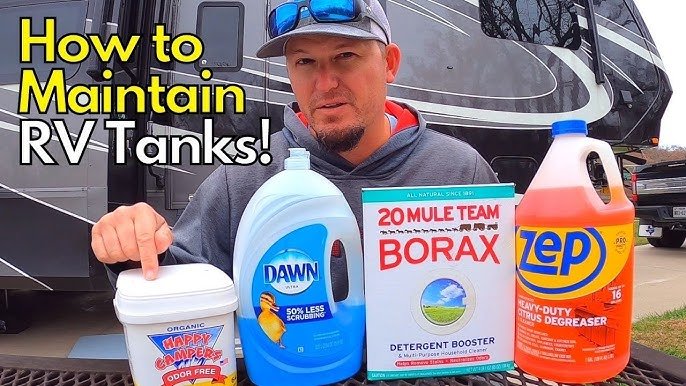An RV generator’s gas usage varies. On average, it uses 1-2 gallons per hour.
Understanding your RV generator’s fuel consumption is crucial for planning trips. Running out of gas can leave you without power, impacting comfort and safety. This guide explains how much gas an RV generator uses and factors affecting consumption. Learn about different generator types and how usage can change based on load and maintenance.
By knowing these details, you can better prepare for your adventures. Dive in to ensure your journeys are smooth and well-powered.
Introduction To Rv Generators
RV generators are crucial for your adventures. They provide power when away from hookups. Understanding how much gas they use is important.
These generators let you enjoy home comforts on the road. They power your lights, appliances, and gadgets. Knowing their gas consumption helps you plan better.
Importance Of Generators
Generators are essential for off-grid trips. They ensure you have power anytime. Without them, many RV functions would not work.
They keep your refrigerator running. They let you cook and charge devices. They maintain comfort and safety during your travels.
Types Of Rv Generators
There are several types of RV generators. Each has different fuel needs. The main types include gas, diesel, and propane.
Gas generators are common. They are easy to fuel but may use more gas. Diesel generators are efficient but cost more upfront.
Propane generators are clean and quiet. They may require more storage space. Each type has its pros and cons based on your needs.
Factors Affecting Gas Consumption
Understanding the factors that affect gas consumption can help you manage fuel costs. Several key elements influence how much gas your RV generator uses. Below are the main factors affecting gas consumption.
Generator Size
Generator size plays a crucial role in gas consumption. Larger generators typically consume more gas. This is because they are designed to handle more power. Smaller generators are more fuel-efficient. They use less gas to produce the same amount of power.
Load On Generator
The load on the generator affects fuel consumption significantly. A generator running at full capacity uses more gas. Lower loads mean lower gas consumption. Operating your generator efficiently can help save fuel. Avoid running unnecessary appliances to reduce the load.
Fuel Type
The type of fuel used also impacts gas consumption. Gasoline, diesel, and propane are common fuels for RV generators. Each has its efficiency levels. Diesel generators are often more fuel-efficient. Propane generators can be less efficient but are cleaner. Gasoline generators fall somewhere in between. Choose the right fuel type for your needs to optimize gas usage.
Calculating Gas Usage
Understanding how much gas an RV generator uses is crucial for planning trips. It helps in budgeting and ensuring you have enough fuel. Calculating gas usage involves knowing the generator’s fuel consumption rate. This section will guide you through the process.
Formula For Calculation
To calculate gas usage, use this simple formula. Multiply the generator’s fuel consumption rate by the number of hours used. The formula looks like this:
Gas Usage (gallons) = Fuel Consumption Rate (gallons per hour) x Hours Used
For example, if a generator consumes 0.5 gallons per hour and runs for 10 hours, the gas usage is:
Gas Usage = 0.5 gallons/hour x 10 hours = 5 gallons
Example Scenarios
Let’s look at some example scenarios to make this clearer. Suppose you have a generator with a fuel consumption rate of 0.75 gallons per hour. If you plan to use it for 8 hours a day, your calculation would be:
Gas Usage = 0.75 gallons/hour x 8 hours = 6 gallons
Another example: A generator with a fuel consumption rate of 1 gallon per hour runs for 5 hours. The gas usage would be:
Gas Usage = 1 gallon/hour x 5 hours = 5 gallons
These examples show how easy it is to calculate gas usage. Knowing this helps you prepare better for your RV trips.
Average Gas Consumption Rates
Understanding the average gas consumption rates of RV generators is essential for planning your trips and managing expenses. The consumption rates vary based on the size and type of generator. Let’s explore the differences among small, medium, and large generators to get a clearer picture of what to expect.
Small Generators
Small generators, typically ranging from 1,000 to 3,000 watts, are efficient for light usage. These generators usually consume about 0.1 to 0.3 gallons of gas per hour. They are ideal for charging batteries and running small appliances.
| Generator Size | Average Consumption |
|---|---|
| 1,000 watts | 0.1 gallons/hour |
| 2,000 watts | 0.2 gallons/hour |
| 3,000 watts | 0.3 gallons/hour |
Medium Generators
Medium generators, typically ranging from 3,000 to 6,000 watts, are suitable for moderate usage. These generators consume about 0.3 to 0.6 gallons of gas per hour. They can power multiple appliances and even small air conditioners.
| Generator Size | Average Consumption |
|---|---|
| 3,000 watts | 0.3 gallons/hour |
| 4,000 watts | 0.4 gallons/hour |
| 5,000 watts | 0.5 gallons/hour |
| 6,000 watts | 0.6 gallons/hour |
Large Generators
Large generators, ranging from 6,000 watts and above, cater to heavy usage. These generators consume about 0.6 to 1.5 gallons of gas per hour. They are capable of running multiple high-power appliances and large air conditioners.
| Generator Size | Average Consumption |
|---|---|
| 6,000 watts | 0.6 gallons/hour |
| 7,000 watts | 0.7 gallons/hour |
| 8,000 watts | 0.8 gallons/hour |
| 10,000 watts | 1.0 gallons/hour |
| 12,000 watts | 1.2 gallons/hour |
Tips To Reduce Gas Consumption
Reducing gas consumption in your RV generator not only saves money but also extends the generator’s life. By implementing a few smart tips, you can ensure your generator runs efficiently. Here are some tips to help you achieve that goal.
Regular Maintenance
Regular maintenance keeps your RV generator in top shape. Change the oil as recommended by the manufacturer. Clean or replace air filters regularly. Inspect the spark plug and replace it if needed. A well-maintained generator uses less gas.
Efficient Load Management
Efficient load management can significantly reduce gas consumption. Turn off appliances when not in use. Avoid running multiple high-power devices at the same time. Use energy-efficient appliances to reduce the load on your generator.
Using Alternative Power Sources
Using alternative power sources can lessen your reliance on the generator. Solar panels are a great option. They provide clean energy and reduce gas usage. Portable wind turbines can also be useful. They work well in windy areas and cut down gas consumption.

Credit: www.walmart.com
Comparing Gas Vs. Other Fuels
When discussing RV generators, fuel type is a key consideration. Different fuels impact efficiency, cost, and convenience. Let’s compare gas with other popular fuels used in RV generators.
Propane Generators
Propane is a common fuel for RV generators. It burns cleaner than gas. This reduces the carbon footprint. Propane is often cheaper than gas. It is also easier to store and has a long shelf life. However, propane generators may produce less power compared to gas generators.
Diesel Generators
Diesel generators are known for their durability. They are more fuel-efficient than gas generators. Diesel fuel is often available at truck stops, making it convenient for long trips. Diesel engines require less maintenance. But, diesel generators can be louder and heavier than gas generators.
Solar Power
Solar power is an eco-friendly option. It harnesses energy from the sun. Solar panels are silent and require little maintenance. They also save money in the long run. Yet, they depend on weather conditions. Solar power may not meet all energy needs, especially in cloudy weather.
Budgeting For Fuel Costs
Budgeting for fuel costs is crucial for RV owners. Fuel expenses can add up quickly. Knowing how much gas your RV generator uses helps manage these costs.
Estimating Monthly Costs
Start by understanding your generator’s fuel consumption rate. Check the owner’s manual or manufacturer’s website. Most RV generators use about 0.5 to 1 gallon of gas per hour. Multiply this by the number of hours you use the generator daily. For example, if you use your generator for 3 hours a day, you might use 1.5 to 3 gallons of gas. Multiply this by 30 days to estimate your monthly fuel usage.
Next, calculate the cost. Check the current price of gas. Multiply your monthly fuel usage by the price per gallon. This gives you a rough estimate of your monthly fuel costs. Remember, this is just an estimate. Your actual costs may vary.
Planning For Long Trips
Long trips require careful planning. Start by estimating the total hours you will use your generator. Consider how many days you will be traveling. Multiply the daily usage hours by the number of days. This gives you the total hours you will use the generator.
Now, calculate the total fuel needed. Multiply the total hours by the generator’s fuel consumption rate. Finally, multiply the total fuel needed by the current gas price. This gives you an estimate of the fuel cost for your trip. Planning ahead helps avoid surprises and ensures a smooth journey.
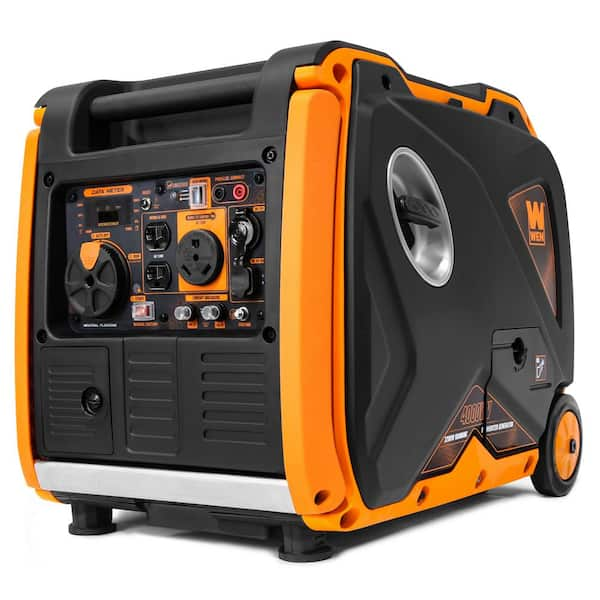
Credit: www.homedepot.com
Environmental Considerations
Using an RV generator has environmental impacts. These impacts can be significant. Understanding these effects is important for eco-conscious travelers. This section covers emissions, pollution, and eco-friendly alternatives.
Emissions And Pollution
RV generators produce emissions. These emissions come from burning fuel. They include carbon dioxide (CO2), nitrogen oxides (NOx), and particulate matter. CO2 contributes to global warming. NOx and particulate matter affect air quality. They can cause health problems.
Different fuel types produce different emission levels. Diesel generators tend to emit more NOx and particulate matter. Gasoline generators emit higher CO2 levels. Propane generators produce fewer emissions. But, they still contribute to pollution.
Regular maintenance can reduce emissions. This includes changing oil and filters. It ensures the generator runs efficiently. Proper ventilation also helps disperse harmful gases. Always use the generator in a well-ventilated area.
Eco-friendly Alternatives
There are alternatives to traditional RV generators. One option is solar power. Solar panels convert sunlight into electricity. They produce no emissions. This makes them an eco-friendly choice. Solar power can meet many RV energy needs.
Another alternative is wind power. Small wind turbines can generate electricity. They are also emission-free. But, wind conditions must be right. Both solar and wind power can reduce reliance on fossil fuels.
Hybrid generators are another option. These use a combination of fuel and renewable energy. They are more efficient. This reduces fuel consumption and emissions. Choosing eco-friendly alternatives can make a big difference.

Credit: www.amazon.com
Frequently Asked Questions
How Much Gas Does An Rv Generator Use Per Hour?
An RV generator typically uses 0. 5 to 1 gallon of gas per hour. The exact usage depends on the generator’s size and load.
How Can I Reduce My Rv Generator’s Fuel Consumption?
To reduce fuel consumption, maintain your generator regularly, use energy-efficient appliances, and avoid overloading the generator.
What Factors Affect Rv Generator Fuel Usage?
Factors include the generator’s size, load, maintenance, and the type of appliances being powered.
Is It More Efficient To Run An Rv Generator At Full Load?
Yes, running an RV generator at full load is more efficient. However, avoid consistently overloading to prevent damage.
Conclusion
Understanding your RV generator’s gas usage helps plan your trips better. Efficient use saves money and ensures a smooth journey. Regular maintenance can optimize fuel consumption. Always check your generator’s manual for specific details. Knowing these tips makes RV adventures more enjoyable.
Safe travels and happy camping!


